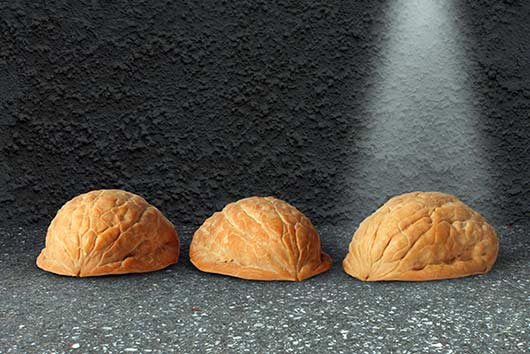
April 14 is National Pecan Day. The word ‘pecan’ comes from an Algonquin word meaning “a nut that requires a stone to break.” Native Americans were eating pecans at least as far back as the 16th Century. Presidents Washington and Jefferson both planted pecan trees on their estates. In the 18th century, New Orleans became the pecan hub of the world. In 1822, Abner Landrum, in South Carolina developed an improved method of grafting pecan trees to produce more nuts. From that point forward, pecans have been a mainstay crop in the South.
Read Related: 8 Things You Didn’t Know You Can Do with Pecans
While we’re celebrating National Pecan Day and reading pecan trivia, let’s not forget that pecans and other nuts (and nut-like fruits) have a lot of health benefits. But, there are also a lot of myths and cherished beliefs about nuts that need cracked (pun intended)! So, here are five nut myths or misunderstandings that need tossed out like old peanut shells.
1. Peanuts are not nuts. Technically, peanuts are legumes (like green beans, clover, or black-eyed peas) and not a nut. Eating peanuts in moderation can have many health benefits, unless you suffer from peanut allergies. But, even those suffering from peanut allergies may be able to eat products made from highly refined peanut oil. Check with your doctor to make sure if it is okay, before eating any refined peanut oil product.
2. Dieters should avoid nuts. Nuts are packed with fats and proteins. Eating large quantities of nuts will probably knock you off your diet. However, a recent Australian study shows that tree nuts can be part of a healthy diet and can help you both lose and maintain weight loss.
3. Nuts are fattening. Nuts are high in fats. But, there is more than one kind of fat. The fats that you should avoid are saturated fats, often used as flavor enhancers in many snack foods. Nuts are high in unsaturated fats. Moderate consumption of unsaturated fats can help lower your cholesterol, so eat up!
4. Nuts will warm you up. Many folks belief that eating nuts produces heat and that, therefore, you should eat them to warm up during cold winter months. Your body does produced some heat, caused by chemical reactions, when it digests anything. Nuts have no special trait in this regard.
5. If you have a peanut allergy you can’t eat any nuts. As already mentioned above, peanuts are not nuts but, are rather legumes. Peanut allergies may affect your ability to eat other legumes, but not tree nuts, unless, of course, the nuts have been processed with peanut oil or have been prepared at a facility that also prepares peanuts. Learn to look carefully at product labels, and check with your doctor before consuming non-peanut-nuts.












